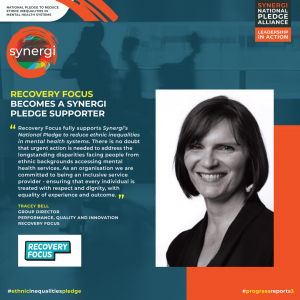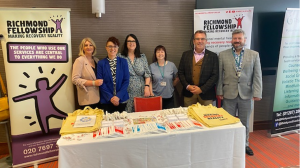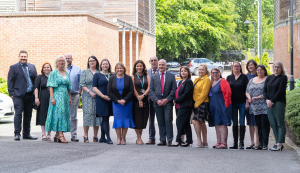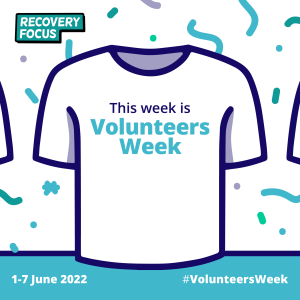Recovery Focus becomes Synergi Collaborative Centre Pledge Supporter
 The Recovery Focus group, which includes Richmond Fellowship, Aquarius and DViP has become the Synergi Collaborative Centre’s Pledge Supporter.
The Recovery Focus group, which includes Richmond Fellowship, Aquarius and DViP has become the Synergi Collaborative Centre’s Pledge Supporter.
The Synergi Collaborative Centre is a five-year national initiative, funded by Lankelly Chase, to reframe, rethink and transform the realities of ethnic inequalities in severe mental illness and multiple disadvantage.
The Centre works closely with commissioners, policymakers, and politicians, as well as public service providers such as Recovery Focus and those experiencing mental ill health, to create and deliver a vision to help eradicate ethnic inequalities in severe mental illness and their fundamental causes.
At Recovery Focus, we are only too aware of the inequalities certain groups can face in society around accessing the support they need and areas of the country where investment is needed. Being part of this new initiative means we can feed into the research being undertaken across the country and be a positive voice for change.
As senior leaders of mental health services and commissioners of mental health care, Recovery Focus will:
> Initiate fundamental service level changes to reduce ethnic inequalities in access, experience and outcomes
> Measure, monitor and report the nature and extent of ethnic inequalities and progress made
> Work in partnership with local BME communities, service users and relevant community agencies
> Provide national leadership on this critical issue
> Ensure inclusive and sustainable change in our localities and communities
> Support timely and progressive research and policy development
> Contribute to a biannual progress update as part of this Pledge.
Tracey Bell, Group Director of Performance, Quality and Innovation, said:
‘We fully support Synergi’s National Pledge to reduce ethnic inequalities in mental health systems. There is no doubt that urgent action is needed to address longstanding disparities facing people from ethnic backgrounds access mental health services.
As an organisation we’re committed to being an inclusive service provider – ensuring that every individual is treated with respect and dignity with quality of experience and outcome’.
To find out more about Synergi’s Collaborative Centre, visit https://legacy.synergicollaborativecentre.co.uk.


















